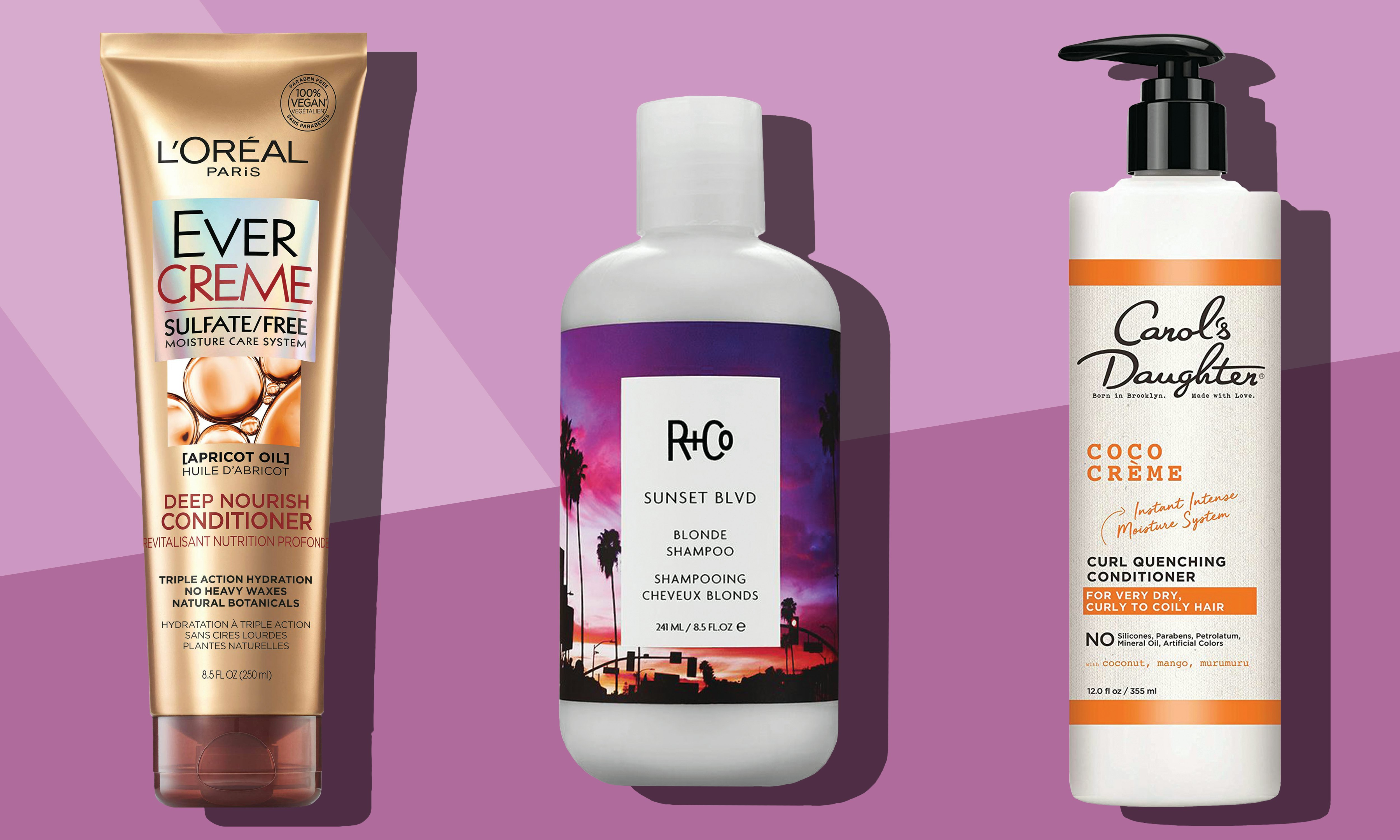What is Hair Oiling? How to, Benefits, and Best Products in 2024
Table Of Content

While ALS is much more gentle, and “cleans the hair and scalp without causing irritation or frizz along the hair shaft,” she says. ALS is also non-drying to strands, which is why James recommends shampoos for to her clients that contain this type of sulfate. Although sulfates get bad press, the experts assure us that they are effective cleansing agents.
Sulfate in Shampoo: What It Is, Fine Hair, Natural Hair, and More - Healthline
Sulfate in Shampoo: What It Is, Fine Hair, Natural Hair, and More.
Posted: Thu, 19 Jul 2018 07:00:00 GMT [source]
Haircare 101: Tips and Tricks For Better Hair
Doing so will ensure you reap the most benefits and avoid over-cleansing. "If overused, left on too long... sulfates will strip oil and lead to irritation," warns Farber. So you'll want to find your wash routine's "sweet spot" of cleaning hair while keeping it hydrated. For most, this involves simply washing hair with shampoo followed by conditioner. Hair types and application methods aside, it's always important to start with a quality product. "Sulfates and silicones exist on many levels of quality and refinement," explains Gillen.
Is sulfate bad for your hair? The experts weigh in
It's complicated, explains renowned London hairdresser Michael Van Clarke. "The sulfates story has been blown up by an army of keyboard warriors who haven’t looked deeply into the science. As an effective detergent, sulfates can be both good and bad—depending on your hair and skin type,” he continues. Even though “milder” sulfate-free shampoos claim to slow color fading even more than other color-protecting formulas, according to GH Beauty Lab testing, that's not always the case. What really matters is how well a product is formulated, not just what it contains.
OLAPLEX No. 4C Bond Maintenance Clarifying Shampoo
In a beauty world where we’re constantly told to forgo popular ingredients because they could cause harm to our skin and hair, it can be hard to determine what’s legit and what’s just classic fearmongering. Among the most popular debates is whether or not sulfates are bad for your hair. They’re included in so many hair products; they can’t be that bad, right? The answer to that is actually a bit more nuanced than you might think. Not gonna lie—I don't think I even knew what sulfates were until, like, after college.
Why do some shampoos have sulfates?
Or, consult with a medical professional for any sulfate-free recommendations. Another frugal favorite, this pick from Native is free of sulfates, parabens, silicone, dyes and is cruelty-free according to the brand. Most haircare problems can be solved by following a haircare regime that is free from synthetic chemicals. Despite the potential risks of sulfates, it doesn't mean that everyone should automatically switch to a sulfate-free shampoo. "Sulfates get a bad rap by those that are spreading misinformation and fear-mongering," says Robinson. "Because this ingredient might not be good for some does not necessarily mean it is not good for others." Here's why sulfates are important.
Should You Avoid Shampoos with Sulfates?
You might even just prefer to avoid them altogether to be on the safe side. Given its powerful cleansing abilities, people whose hair tends to be on the drier end may want to consider using sulfate-free products. Sulfates are types of chemicals called surfactants, and are used as chemical foaming agents in most hygiene products such as soaps, toothpastes and shampoos. In fact, sulfates have actually been used in hygiene products since the 1950s, and are the most commonly used detergents in the industry. These ingredients are concentrated in shampoos for the easy removal of grime and dirt. The presence of these sulfates in the shampoo is the main reason why you feel cleaner and fresh after you wash your hair.

Keep reading to find out more about sulfates, why products contain them, and who should avoid them. You can read about six of our favorite sulfate-free shampoos on the LovelySkin Blog. Proteins are essential to hair health because they create strong and durable hair bonds. If your hair is in need of some extra protein, try a rice water rinse, keratin treatment or collagen mask.

One of my favorite sulfate-free products is the Garnier Whole Blends Sulfate-Free Remedy Honey Treasures Shampoo. It makes my wavy hair look shiny and helps protect against heat damage. If you have color-treated hair, try the Matrix Keep Me Vivid Sulfate Free Shampoo. Those who have received a chemical service like a color treatment or a straightening procedure should also avoid sulfates to help prolong the results. Silicones can be found in every step of your haircare routine, from shampoos to finishing creams.
“Micelles are the key to gentle cleansing, regardless of the surfactant used," Thomas explains. "It takes formulation experience and in-depth knowledge of micelles to get it right." The most common sulfates used in hair products are sodium lauryl sulfate (SLS) and sodium laureth sulfate (SLES). They’re used often because of their ability to act as surfactants, says Dr. Brendan Camp, a board-certified dermatologist at MDCS Dermatology in New York City. That’s a fancy word for chemical compounds acting as a cleansing agent — exactly what sulfates do. The most concerning part of sulfate shampoos is the residue they leave behind even after they’ve been washed off. However, hair needs some of its natural moisture and oil to remain healthy.
As for hair damage, Wilkerson shared an interesting study with us that proved their safety. The study compared a product that contained sulfates to different types of sulfate-free formulas. It showed the hair loss over several cycles, washes, and hair brushing. Though each was treated the same, the product containing the sulfates left hair the healthiest.
Are Sulfates and Silicones Really Bad for Your Hair? - Martha Stewart
Are Sulfates and Silicones Really Bad for Your Hair?.
Posted: Fri, 29 Apr 2022 07:00:00 GMT [source]
According to Gretchen Friese, certified trichologist at Bosley MD, sulfates can strip the hair of essential moisture. "Sulfates may strip away too much moisture and leave the hair dry and possibly damage it," says Friese. Achieving beautiful, healthy hair isn't just about sticking to a routine. Yes, it's necessary to do so, but it's also about paying attention to the ingredients in your hair care formulas. Some ingredients are more well-known, like formaldehyde, which studies show does have negative impacts. For example, sulfates are sometimes thought to be bad for hair—but not always.
Comments
Post a Comment